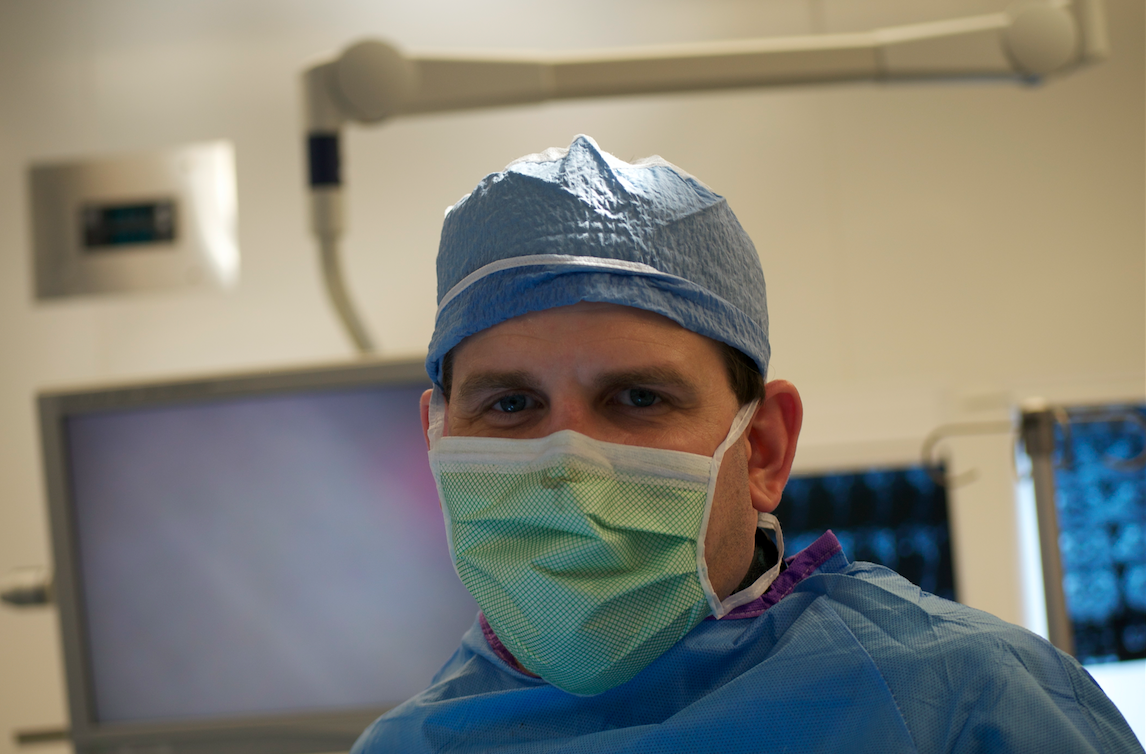Editor’s Note: This story was published in 2017, when Duntsch was convicted and sentenced to life.
Ex-neurosurgeon Christopher Duntsch will spend the rest of his life in prison for maiming patients. A jury returned the verdict Monday afternoon, ending a yearslong investigation into dozens of botched surgeries that resulted in two deaths and multiple cases of paralysis.
Duntsch was the focus of D’s November cover story—in a press conference after the verdict, prosecutors proclaimed that the Memphis native was the first physician in the nation to be convicted for behavior inside the operating room. His outcomes were so poor, so beyond the accepted standard of care, that a grand jury indicted him on five counts of aggravated assault with a deadly weapon as well as a single count of harming an elderly patient. He started practicing at Baylor Regional Medical Center at Plano and secured privileges at Dallas Medical Center despite having had a patient, Kellie Martin, bleed to death during a surgery. His best friend, Jerry Summers, was left a quadriplegic. At Dallas Medical Center, Floella Brown died of a stroke after an operation and Mary Efurd was severely harmed. He practiced at Legacy Surgical Center in Plano and ended his career at University General Hospital. Prosecutors identified more than 30 patients at the four hospitals who were harmed at his hands in a period of just over 18 months.
During two weeks of testimony in the sentencing portion of the trial, prosecutors zoomed into the 17 years he spent in medical school, residency, and fellowships. They argued that he had to have known that he was likely to hurt the next person he operated on, and he did it anyway. The jury, in returning the guilty verdict after four hours of deliberation, agreed.
A looming print deadline kept me out of the courtroom on Monday for the punishment verdict, but The Dallas Morning News did a good job chronicling the final day of testimony, which included comments from many of his victims:
They heard from Philip Mayfield, who cries when he thinks of all of his son’s football games that he hasn’t been able to watch because he often passes out from chronic pain, and Barry Morguloff, who limps with a brace and a cane as a result of irreparable nerve damage in his spine.
They heard from Jeff Cheney, who woke up paralyzed from the neck down on his right side, and Jackie Troy, who talks in a permanent whisper and almost died from an infection after she was left with puncture wounds in her throat after Duntsch performed neck surgery on her.
One of the questions raised by reporters in the afternoon was why he came to Dallas. Civil lawsuits filed in Memphis show that he was broke before coming here. He spent about 18 months away from the operating room doing research and pursuing patented medical technology. He took credit for discovering inventions that his partners later claimed that he stole from them. He involved high school friends in two businesses meant to commercialize the technology, then failed to live up to his promises. They sued, and the emails came out: “My reputation has been ruined,” he wrote one morning at 4 a.m. “I have lost both companies.” When the money ran out, he began looking for opportunities to practice. He settled on Dallas.
Drs. Michael Rimlawi and Douglas Won, themselves now indicted in a separate federal kickback scheme, recruited Duntsch to town. He was offered a $600,000 annual salary, and stood to earn 40 percent of all revenue he generated beyond $800,000 a year. Prosecutors said this greed fueled him. His ego ballooned, as evidenced in other emails in which he compared himself to God and Einstein. He once wrote that he was a “mother fucker stone cold killer.” Drug and alcohol abuse dogged him throughout his career, but he never tested positive. Substance abuse allegations largely stayed out of the trial until the sentencing phase—the outcomes were poor enough that the state could center on those to secure his sentence.





